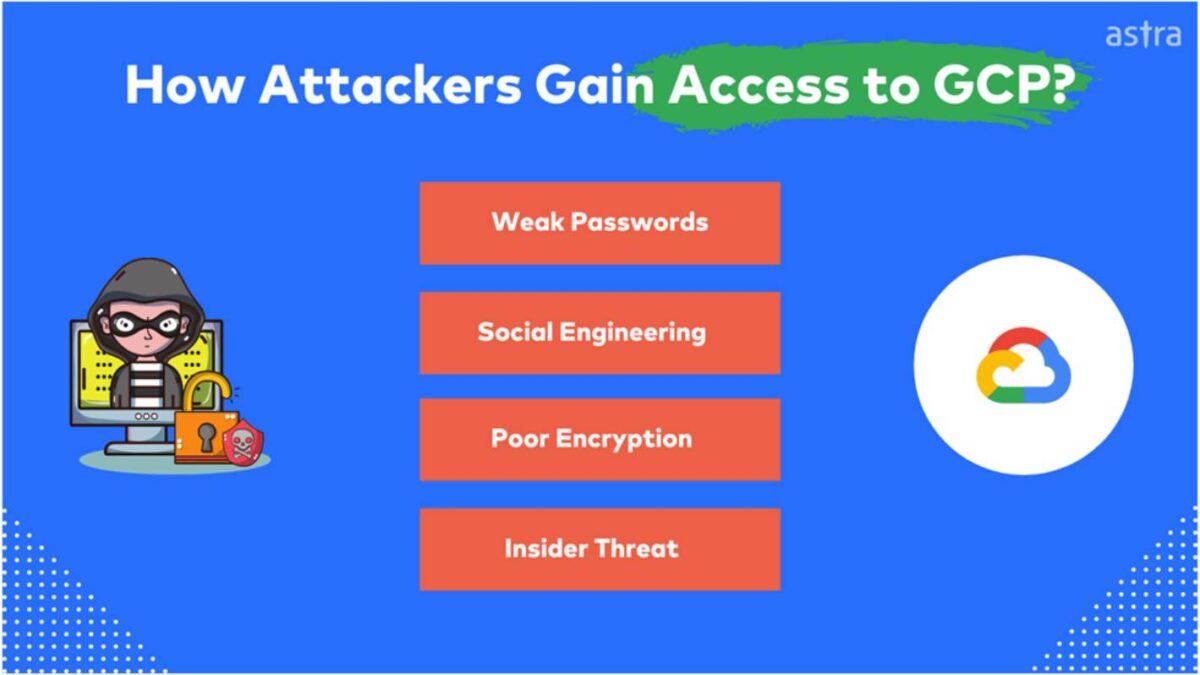GCP Security: If you are currently using GCP to power your data-driven business, then the security of your GCP resources is paramount. GCP provides a number of advanced security features that can help guard against unauthorized access or accidental deletion of critical information. In this blog post, we will discuss how GCP’s Security Controls work and what you should know about them to keep your data safe.
Table of Contents
ToggleWhat is Google Cloud Platform?
GCP is a G Suite (Google Apps) service that provides enterprise-level computing and data storage services through the use of virtual machines, file storage, big data capabilities, and various other tools. GCP offers competitive pricing for their services as well as an industry-leading 99.95% SLA available across all regions. GCP security ensures your G Suite account remains secure and compliant with G Suite’s Terms of Service, which includes requirements such as:
- Ensuring end-users do not share or misuse company information;
- Guarding against phishing attacks to protect user accounts from being compromised by unauthorized parties;
- Implementing robust password policies to ensure that employees have complex passwords in place on any device they are using at work.
What is GCP security?
GCP security is a set of tools that G Suite administrators can use to protect their G Suite domain. These controls help ensure the privacy and security of G Suite data. GCP security features also provide access management capabilities, allowing you to control which users have access to your company’s resources as well as what they are allowed to do with those resources once they gain access.
What are Security Controls?
G Suite’s Security Controls provide a framework for GCP customers to become aware of security related issues and implement an action plan for meeting the G Suite SLA. GCP provides tools such as:
- Role-based access controls;
- Permissions management;
- Data loss prevention (DLP);
- User activity auditing;
- Logging and monitoring.
The G Suite administrator can also configure detailed alerts about specific types of user behavior, which could indicate that user accounts have been compromised by unauthorized users or malicious software. The G suite administrator is responsible for configuring these settings within their organization in order to meet compliance requirements outlined in the terms of service agreement. These are just some examples of what you should know about securing your data and GCP resources and how G Suite can help you meet your security requirements.
Why is GCP Security Important?
Security Controls help G Suite administrators protect user productivity and G Suite data by:
- Monitoring unusual or suspicious activity – Reporting on who has access to company information as well as what they are allowed to do with that information. Ensure G suite users cannot share, misuse or abuse GCP resources such as email accounts, calendars, or storage.
- Protect against phishing attacks – Unauthorized parties should not be able to compromise your organization’s security through social engineering ploys designed for the sole purpose of stealing critical business information. G Suite provides a number of built-in policies and protections which include: Customizable password requirements – you can set up custom configurations based on industry regulations like HIPAA, ISO 27001/27002, and GDPR policies, as well as G Suite’s own requirements.
- Require multi-factor authentication – GCP includes a number of features for ensuring that access to G suite resources is restricted to authorized parties only. G Suite administrators can set up Multi-factor Authentication (MFA) policies that require users to authenticate their identity with an additional form of verification beyond just passwords, such as security keys or one-time codes delivered over an SMS text message. This helps prevent unauthorized people from accessing company information through the user accounts you have created. A security audit report is one of the most significant documents used to evaluate an organization’s security strengths and vulnerabilities.
Conclusion:
The security of your data is paramount. That’s why it’s important to be aware of the various potential threats and how you can protect yourself against them, like with encryption or by using a VPN (Virtual Private Network). Be sure to take advantage of all the resources available for GCP Security on Google Cloud Platform; they provide an in-depth overview of what needs protecting and how best to do so.
Also Read: Set Yourself Apart from the Competition with the Best Gaming Keyboards
Related posts
Hot Topics
Understanding TruthFinder’s Background Check Features
Background checks have become increasingly relevant for personal safety and information gathering in digital environments. TruthFinder offers comprehensive background check…
How MLOps Is Shaping the Future of AI in Business
Artificial intelligence (AI) has evolved from a futuristic idea to a strategic necessity for companies looking to innovate, grow, and…



